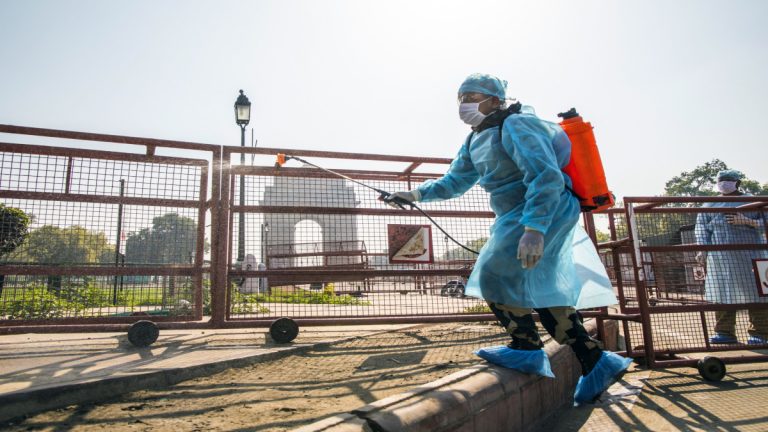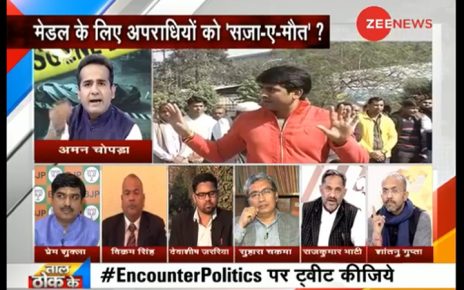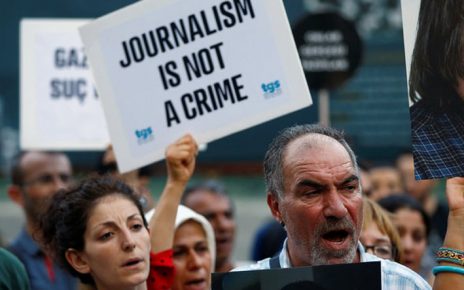The Print
15 June 2020
The RRAG report listed states and cases that were registered against journalists for their stories on PPE shortage, food distribution and alleged corruption among others.
New Delhi: As many as 55 journalists have been targeted for covering the pandemic in India between 25 March, when lockdown was first imposed, and 31 May, a report by Rights and Risks Analysis Group (RRAG) released Monday says.
Journalists faced arrest, registration of FIRs, summons or show cause notices, physical assaults, alleged destruction of properties and threats for doing their job and exercising their right to freedom of expression, the report by the Delhi-based think tank said.
The RRAG conducts risk analysis to prevent violations of human rights and fundamental freedoms. They especially focus on threats to the rule of law and democracy. It also provides an analysis of state and non-state policies as well as warnings on impending conflicts.
With 11 cases, Uttar Pradesh leads the list of states with maximum number of attacks on media persons, followed by six in Jammu and Kashmir, five in Himachal Pradesh, four each in Tamil Nadu, West Bengal, Odisha and Maharashtra, two each in Punjab, Delhi, Madhya Pradesh and Kerala, and one each in Andaman & Nicobar Islands, Arunachal Pradesh, Assam, Bihar, Chhattisgarh, Gujarat, Karnataka, Nagaland and Telangana.
“India has become the riskiest place for the journalists in the world. The government of India, from the outset of the pandemic, sought to suppress press freedom under the garb of deliberate or inaccurate reporting on Covid-19.
“Even though on 31.03.2020, the Supreme Court refused to interfere with the free discussion about the pandemic, the repression on the journalists who acted as messengers by risking their lives to convey the news of various mismanagement, deficiencies, corruption, hunger of the migrant workers/impoverished citizens, lack of adequate PPE for doctors at hospitals etc began in earnest,” Suhas Chakma, director, RRAG, said.
Prime Minister Narendra Modi had announced a nationwide lockdown to arrest the spread of coronavirus on 24 March and extended four times since. Restrictions gradually began easing from 17 May and phase one of unlocking beginning on 8 June. So far, the infection has spread to over 3.32 lakh people, killing nearly 10,000 of them.
Media ‘offences’, in numbers
Despite the lockdown being used to prepare India’s health infrastructure, its poor implementation propelled a migrant exodus of mammoth proportions, which was covered extensively by media organisations across the country.
For covering the humanitarian crisis, administrative failure, negligence and mismanagement, at least 22 journalists were named in First Information Reports (FIRs) under the Indian Penal Code, Information Technology Act, Disaster Management Act, Motors Vehicles Act, Scheduled Tribes/Scheduled Castes (Prevention of Atrocities) Act and Unlawful Activities (Prevention) Act.
At least 10 journalists were arrested for allegedly spreading fake news, exposing alleged corruption, violating lockdown rules even though the media is a part of essential services, reporting on food shortage and the lack of Personal Protective Equipment (PPE) among others.
Seven have been summoned or served show-cause notices for alleged factual inaccuracies and damaging the administration’s image, and even for publishing an official letter that addressed the shortage of PPE and their poor quality.
The report further said at least nine journalists were beaten up, of which two were in police custody. A report on a Telangana ruling party MLA prompted the alleged demolition of a journalist’s home, while a female reporter received online threats after publishing a report titled, ‘Wildlife hunting on spike, say forest officials’ in the Arunachal Times.
While the cases of attack on journalist were many, the Press Council of India (PCI) made suo motu interventions in only four of them — FIRs against Republic TV, FIR against Editors of Media Break Newspaper, online threat to The Editor of Arunachal Times and the threat of criminal prosecution and questioning of a Special Correspondent of the Indian Express by the Delhi Police.
“These interventions of the PCI are highly inadequate and (the) media remains at serious risks in India,” said Chakma.



